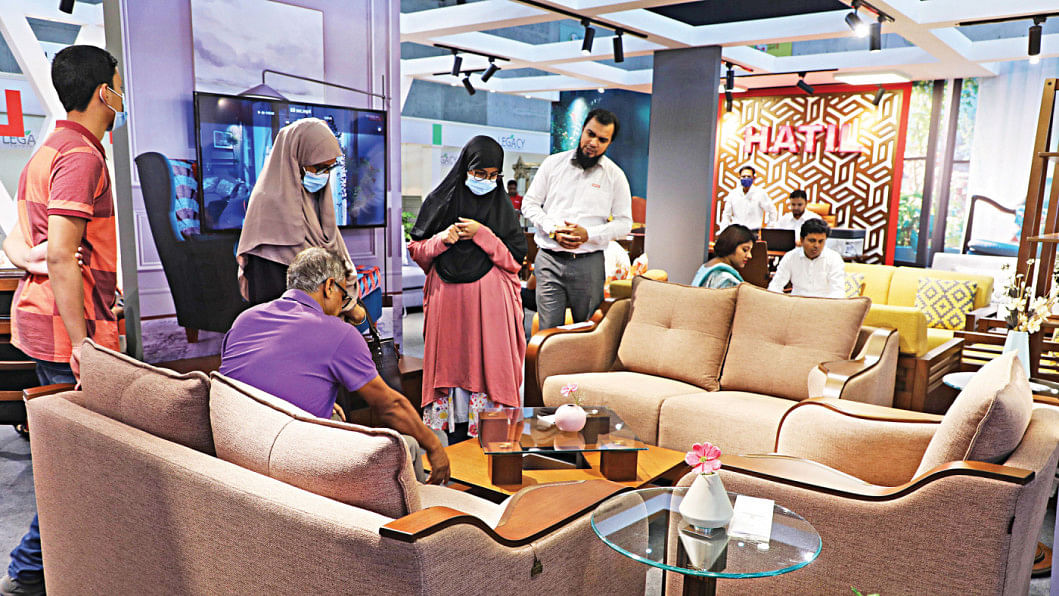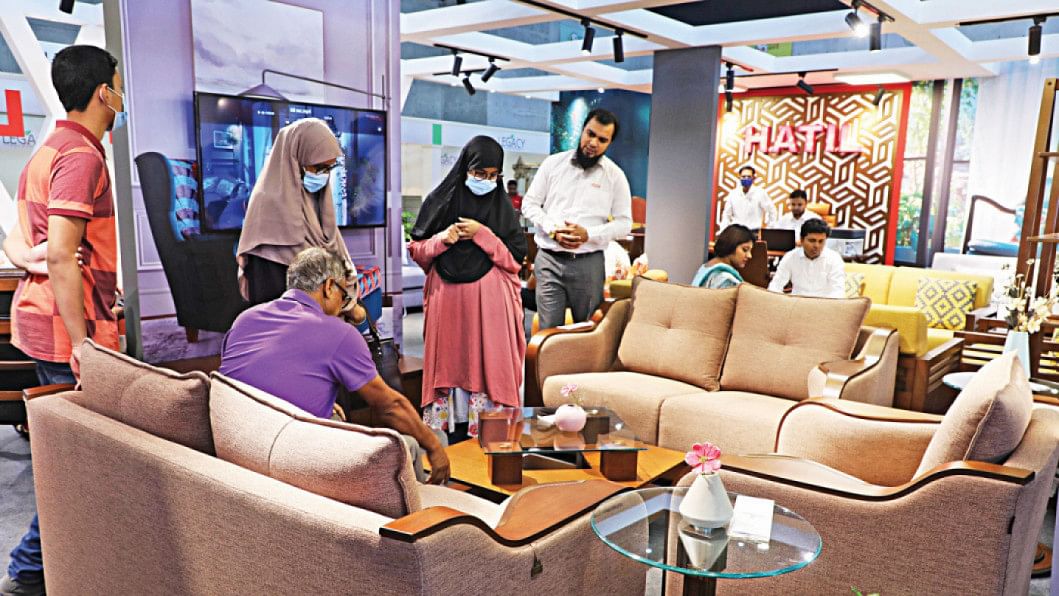Furniture export below potential

The wooden furniture industry in Bangladesh has not flourished as market players are unable to export their products at competitive prices amid the high tariff on imported raw materials and subsequent dearth of quality components, speakers said at a discussion.
The wooden furniture business is considered a promising sector due to the abundance of labourers, flow of capital and technological facilities available in the country, they said.
These comments came at a discussion, styled "Future of the Furniture Industry in Bangladesh", jointly organised by Hatil and The Daily Star at The Daily Star Centre in Dhaka yesterday.
The popularity of wooden furniture is increasing day by day but most raw materials, including quality wood and chemicals, have to be imported, said Salim H Rahman, chairman of the Bangladesh Furniture Industry Owners Association (BFIOA).
"By importing raw materials for export products, we lag behind in competition as the production cost is high," he added.
Rahman also said that furniture exports would increase if the sector is granted partial bonded warehouse facilities.

Local entrepreneurs currently meet about 95 per cent of the demand for wooden furniture, according to industry people.
More than 40,000 small and big companies are involved in the production and marketing of furniture, as per the Bangladesh Investment Development Authority.
And although there are more than 100 brands, including Hatil, Akhtar Furnishers, Partex and Regal Furniture, about 65 per cent of the Tk 30,000 crore market is controlled by non-branded cottage, micro and small enterprises.
In Bangladesh, the furniture sector is the second-largest job provider after the garments and textiles, employing about 20 lakh people.
Rahman, also chairman of Hatil, said the lack of foreign investment remains a challenge for the industry.
If these obstacles are tackled in a sustainable manner, the furniture industry could become a key source of foreign income, he added.
A Karim Mazumder, managing director of Nadia Furniture Limited, said many government officials feel that giving a partial bonded warehouse facility to furniture makers will lead to irregularities.
"But that is not the case," he added.
The furniture industry in Bangladesh has witnessed a remarkable surge in exports, which increased by more than 100 per cent in the past six years.
In fiscal year 2021-22, Bangladesh exported furniture to around 61 countries.
Rayana Hossain, managing director of ISHO, said if someone wants to import furniture, they have to pay the same amount of duty for importing parts or pieces that they would for a complete set, which is not fair.

Mohammad Abdur Razzaque, chairman of the Research and Policy Integration for Development, said to do well in exports, the local market has to be connected with the global value chain.
Mahbubur Rahman, director general of the Export Promotion Bureau, said shipments have not increased proportionately with growth in the local furniture market.
"So, you have to address the support that you want from the government," he added.
According to a report published by Spherical Insights, the global furniture market was valued at $548.38 billion in 2021 and is expected to reach $780.8 billion by 2030 at a compound annual growth rate of 5.1 per cent during the forecast period.
Bangladesh's contribution to the global furniture market is 0.03 per cent, as per data from the BFIOA.
Amer Karim, chief executive officer of Legato Design and Fabrication, Shah Alam Monshi, chief operating officer of Partex Star Group, Nazim Hassan Sattar, general manager of SME Foundation, and Abdus Samad Al Azad, joint secretary of the commerce ministry, also spoke.

 For all latest news, follow The Daily Star's Google News channel.
For all latest news, follow The Daily Star's Google News channel. 



Comments